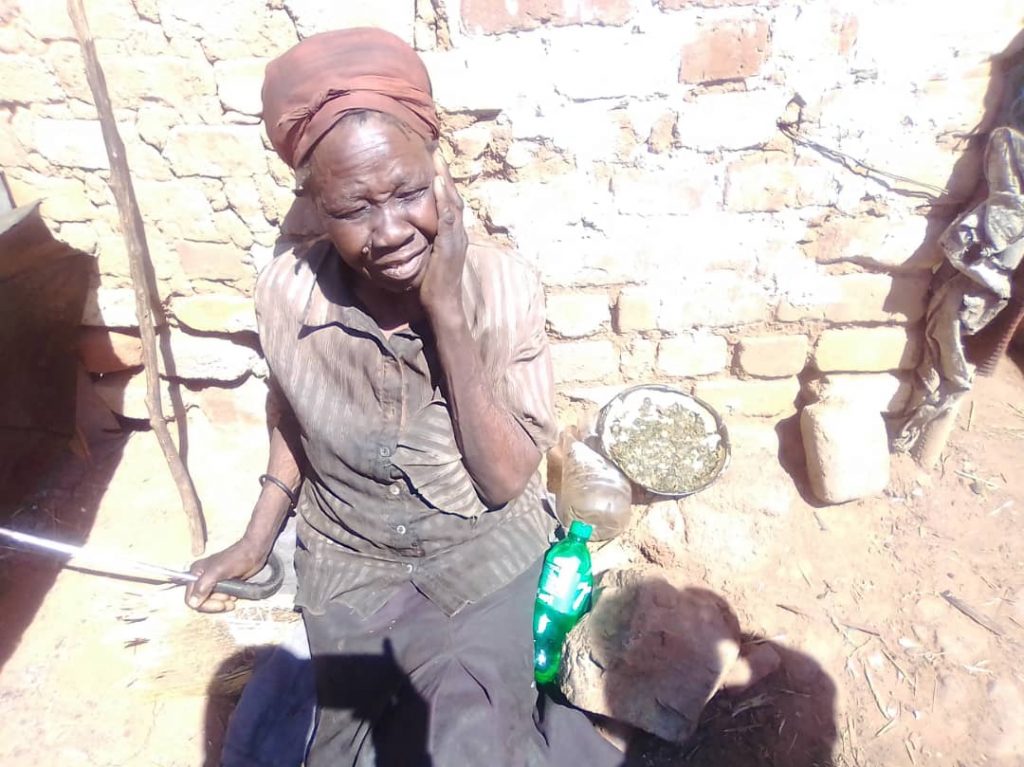BY NYASHA DUBE – Zimbabwe today celebrates Heroes Day and one would think that the liberation struggle and attainment of independence in 1980 came forth with several freedoms.
But for the elderly women residing at a shanty settlement popularly known as Kwa Brown in Zvishavane, Midlands province, the story is different.
The settlement, located just a few kilometres from former asbestos giant Shabani mine, comprises mostly of elderly women in their 80s and 90s, most of whom say they witnessed and participated in the armed struggle against colonial rule. They since lost touch with their families when the war ended.
They are not only old, vulnerable women, these are mothers, grandmothers, sisters, women who probably had a critical role to play during their youthful years.

“We have waited and waited for years hoping that life will turn around but no one is coming to our rescue. We are on our own,” they say.
Elina Bhengu, born on 10 January 1949 had become blind. She says she developed a rare disease which affected her legs but could not afford to get medical help. That’s how she ended up visually impaired.
“My only wish is to reconnect with my son. His name is Isaac Enock Kaunda. I hear he is somewhere in this town,” she says with little hope in her voice.
Elina stays alone in a small brick hut. She spends almost the whole day seated on her doorstep in the scorching sun as she can barely walk, and crawls back into her hut at night to sleep.
She has no one to cook for her or tidy up her room. Asked on where she gets food, she says she survives at the mercy of a well wisher who brings her cooked food once in a while.
Alice Ngwenya (80) also stays alone in her small hut, with a scattered roof top. Come rainy season the roof can be swept away and she will have no place to stay.
Alice says she has children but has not been in touch with them for a long while.
Her face lights up as she receives a donation of basic goods.
“This means a lot. Thank you for passing by and remembering us,” she says with a shaky voice and teary eyes.
She can still see and walk, but she has become too weak and fragile to take care of herself.
The stories of the two women are no different from the others who stay at this place.
What is even more glaring about the settlement is the lack of adequate ablution facilities. There are no proper toilets or safe source of water for domestic use.
This not only puts this community at risk of contacting diarrhoeal diseases. With the COVID-19 at hand, they could easily succumb to the pandemic.
Whilst the women seem to have made peace with their situation, the hopelessness on their faces only lives one in despair, wondering what can be done to restore their hope.